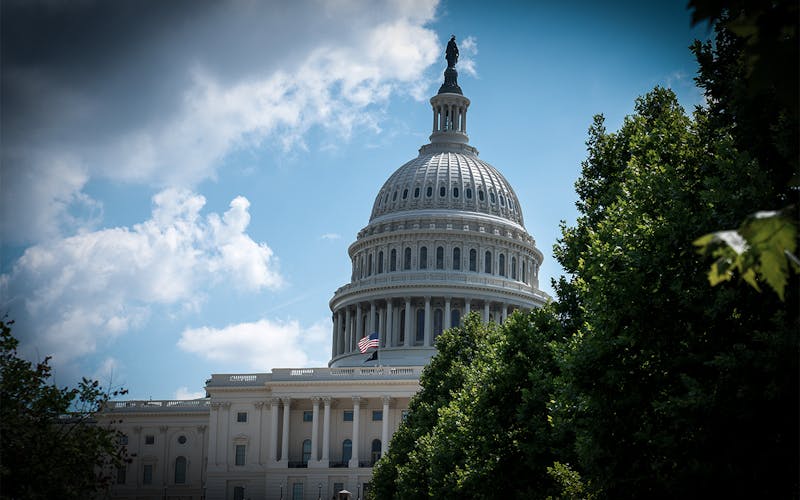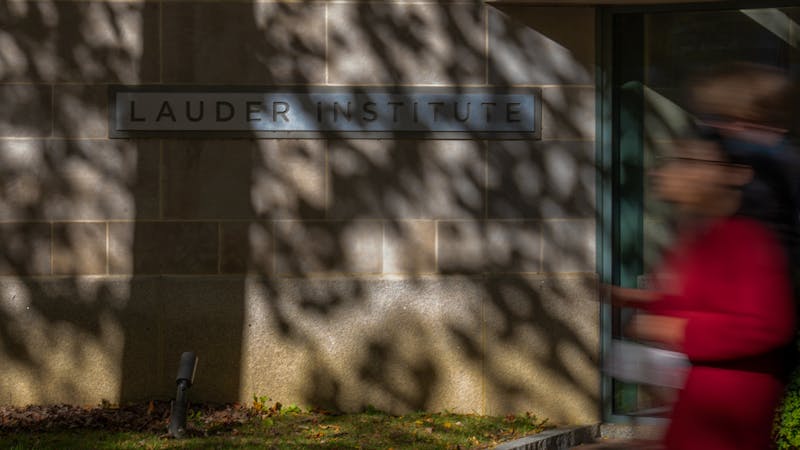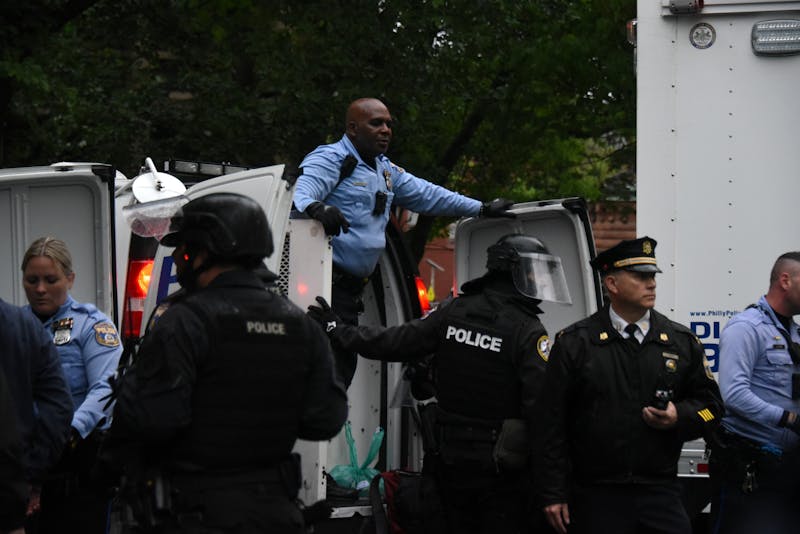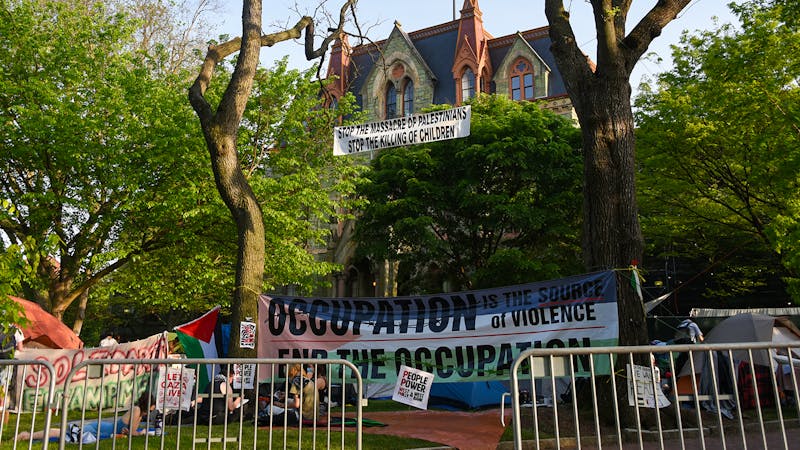
Wharton and Engineering Senior Noah Rubin testified in front of the PA state senate alongside College sophomore Benjamin Messaf regarding antisemitism allegations at Penn.
Credit: Abhiram JuvvadiTwo Penn students — rising College sophomore Benjamin Messafi and rising Wharton and Engineering senior Noah Rubin — and one administrator testified about their experiences with antisemitism at Penn at a hearing convened by the Pennsylvania Senate Education Committee to reassess policies on harassment and hate speech.
Messafi, who participated in the July 25 hearing alongside students from Penn State University and the University of Pittsburgh, focused his testimony on his experiences this past semester, particularly regarding the Gaza Solidarity Encampment and other campus protests. Rubin submitted a written testimony.
Vice President for Government and Community Affairs Jeffrey Cooper submitted a written statement on behalf of the University.
A University spokesperson declined to comment on the hearing.
“I am here today, scared and nervous,” Messafi said in his testimony. “I am anxious that, like the last, this upcoming academic year will bring more riots, encampments, and harassment of Jewish students.”
Messafi alleged that presence of the encampment on Penn’s campus led to 150 incidents of harassment and intimidation against Jewish students. He reported experiencing and witnessing antisemitic chants, imagery, and direct threats, including the glorification of terrorist organizations and calls for violence against Jews.
“Freedom of speech does not mean freedom to incite violence, call for the genocide of Jews, and blatantly violate university policy,” Messafi said. “And these acts of hate are not peaceful. There are other ways to protest the ongoing war than to declare war on your Jewish students who have zero involvement in an overseas conflict.”
Messafi called for stronger action from University administrators to enforce policies protecting student safety and free expression and urged the committee to “hold administrators accountable."
“The University of Pennsylvania was once my dream school, but now it is unrecognizable,” Rubin wrote to begin his written testimony. “Leading up to October 7th, 2023, I could feel things start to change, for the worse.”
Rubin expressed frustration with the University’s response, stating he had attended over 15 meetings with administrators without seeing satisfactory action.
“Freedom of speech does not mean freedom to incite violence; academic freedom does not mean freedom to indoctrinate,” Rubin wrote.
In his opening remarks, state Sen. and Committee Chair David Argall (R-Pa.) noted that administrators from multiple universities — including Penn — had been invited to testify at the hearing, but “none were able or willing to attend.”
“We share the Committee’s interest in combatting antisemitism at institutions of higher education, and we continue to work aggressively and intentionally to eradicate this and all other pernicious forms of hate from our campus,” Cooper wrote in his statement.
He went on to outline the University's comprehensive action plan aligned with the U.S. National Strategy to Counter Antisemitism. According to Cooper, Penn has begun implementing various measures such as increased security checks, educational programs, and student advisory groups.
The University’s statement also included ten recommendations from the Task Force on Antisemitism, which Cooper wrote were “designed to be actionable, with implementation of many already underway.”
Specifically addressing the 16-day Gaza Solidarity Encampment on College Green this spring, Cooper stated that administrators met with organizers multiple times hoping that “reasonable conversations could address their concerns and the University’s needs.”
“We made clear that their proposals were not possible, including their demands that participating students and faculty receive amnesty without proceeding through our due process for conduct and for divestment from entities engaged with Israel,” the testimony added.
The Gaza Solidarity Encampment began on April 25, when pro-Palestinian demonstrators set up an encampment on College Green to protest the university's ties to the war in Gaza.
Despite attempts at negotiation and deescalating tensions, the encampment was dismantled on May 10 resulting in 33 arrests — including nine Penn students.
Rubin previously criticized the University’s response to antisemitism at a Feb. 29 roundtable hosted by the U.S. House Committee on Education and the Workforce.
The Daily Pennsylvanian is an independent, student-run newspaper. Please consider making a donation to support the coverage that shapes the University. Your generosity ensures a future of strong journalism at Penn.
Donate











